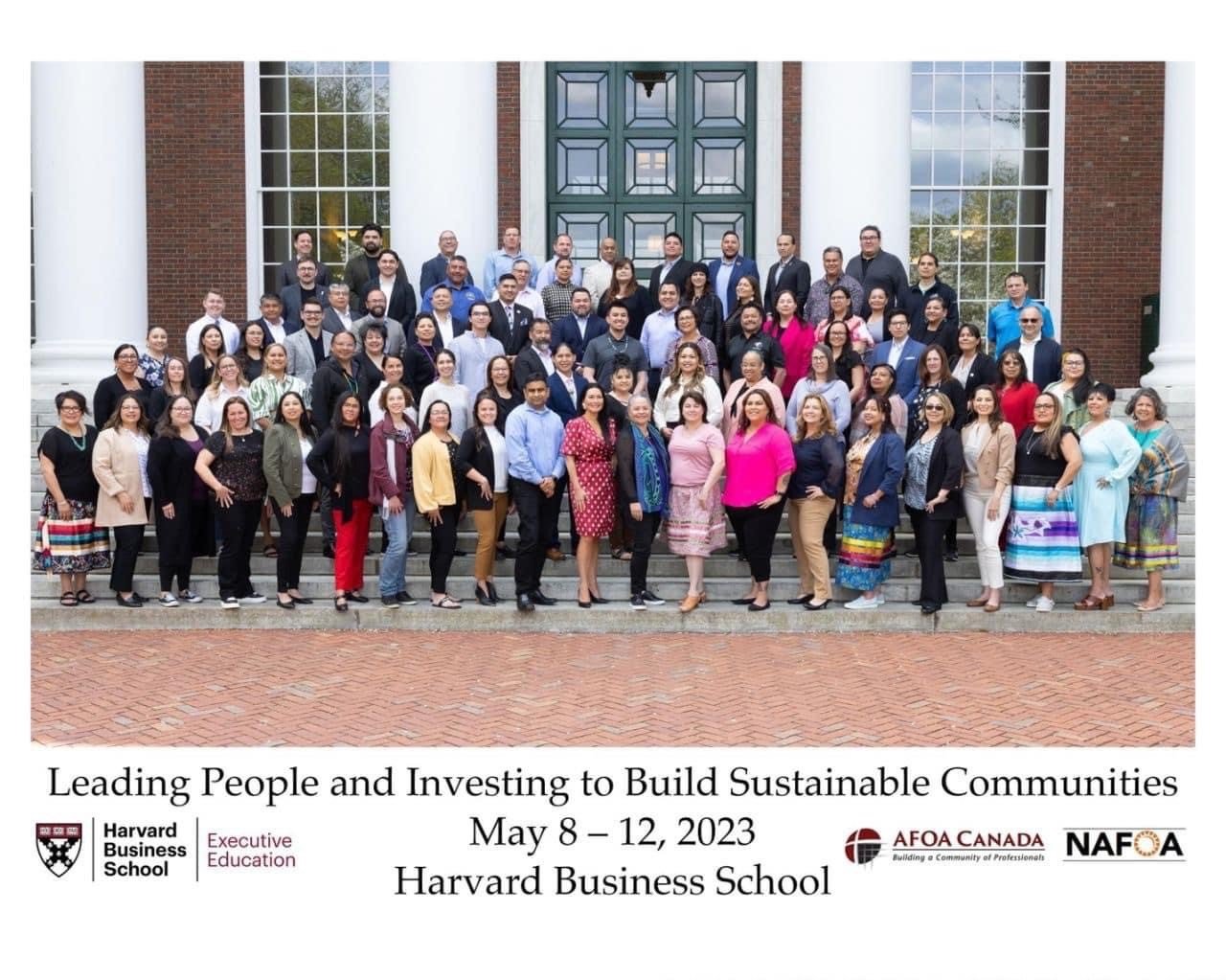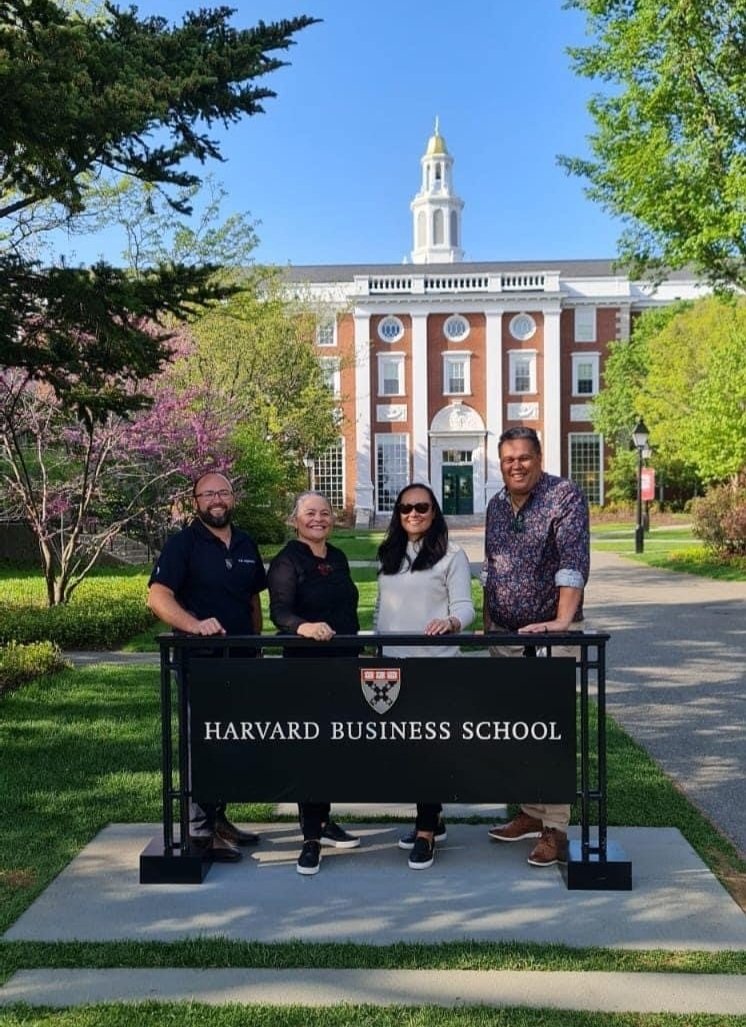The Class of 2023 (80 Indigenous leaders from Canada, USA, Australia and Aotearoa)
E rere te huata, kapohia!
When the spear flies, grab it!
This whakataukī reminds us to seize opportunities when they arise. For Wakatū Chief Financial Officer (CFO) Joe Hanita (Te Ātiawa, Ngāti Kuia, Rangitāne, Ngāti Kahungunu), this has been a guiding principle throughout his career, which has led to once-in-a-lifetime experiences - most recently a trip to Harvard Business School.
Joe connects to Wakatū through his Hemi whānau connection to Hapiata Te Putu. He is the first Wakatū CFO to be a whānau member and prior to joining Wakatū as kaimahi, he completed Te Amonuku, our Associate Director programme and spent five years as CFO at Parininihi ki Waitotara Incorporation in Taranaki. Joe's dedication extends beyond Wakatū, with external governance roles at the External Reporting Board, Te Ātiawa o Te Waka a Maui and Te Kotahitanga o Te Atiawa (Taranaki).
His service and contribution to Nga Kaitatau Maori o Aotearoa (Māori Accountants Network) earned Joe a coveted spot in the Harvard Business School programme, Leading People and Investing to Build Sustainable Communities. This five-day programme, attended by and aimed to inspire and support over 80 indigenous finance professionals and leaders from the US, Canada, Australia and Aotearoa, teaching them tools for leading high-performing, innovative communities and organisations.
The contingent from Aotearoa - Joe Hanita, Jamie Rihia, Elizabeth Richards and Victoria Davy.
Entering Harvard with no expectations, Joe found himself immersed in Harvard's prestigious environment. He says, “When you see the quality of the faculty, the facilities, and the calibre of the content you have access to, it’s clear why students fight to get there.”
The programme blended theory and real-world case studies, emphasising indigenous ways of knowing and being. Joe notes, “Hearing from some of the best finance and investment professionals, first nation leaders and their experience navigating the business sector reinforced a lot of the work we’re already doing - especially from an indigenous approach.”
Despite its Western setting, Joe says the programme fostered a nurturing environment reminiscent of a traditional wānanga, embracing participant perspectives.
“It was familiar and intensive - much like a wānanga. We were encouraged to share our thoughts, our stories, our perspectives, and challenge one another across the floor.”
Indigenous practices were woven into the programme, including an opening ceremony led by local First Nations people, and the programme ended with a poroporoaki where the Aotearoa rōpū shared mihi, waiata, and haka.
Reflecting on his experience, Joe highlights three key takeaways from the programme relevant to Wakatū. Firstly, he stresses the importance of organisational purpose to guide decision-making during challenging times. Secondly, disciplined financial decision-making and enhancing financial literacy within communities are crucial. Lastly, Joe emphasises the value of cultivating relationships beyond financial considerations, fostering partnerships that benefit communities in many ways.
Terry Goodtrack (CEO - AFOA Canada), Varene Martin (1st Vice President - NAFOA USA), Joe Hanita, and David Ager (Managing Director, Executive Development and Education - Harvard Business School)
For whānau who dream of similar journeys, Joe returns to the whakataukī, E rere te huata, kapohia! - When the spear flies, grab it!
“It’s important that we don’t let opportunities pass us by, because they often don’t come up again. They will require sacrifice, dedication, and resourcefulness, but they can shape our personal growth, contribute to our communities, and open doors for future generations.”
By embracing these moments, we honour our heritage, show that we have a place in prestigious institutions like Harvard, and continue to carve paths for indigenous success.
Joe’s attendance at the Harvard Business School programme was externally funded.




